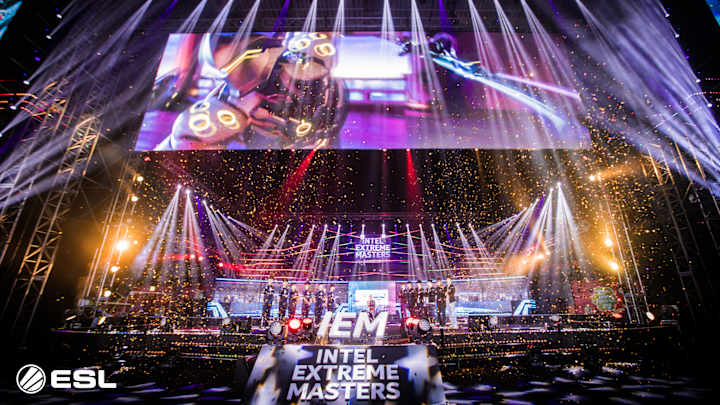Mets COO Jeff Wilpon Discusses His Overwatch Esports Franchise, Expanding League’s Audience

It's often said that the best way to get into a sport—any sport, be it athletic or electronic—is to become a fan of team.
Two factors are essential for making a team attractive to prospective fans. The first is roster stability; if a team's personnel is perpetually shuffling, fans are left without a core group to develop a visceral tie to—you know, that ferocious attachment that drives self-respecting grown men to scream at televisions.
But still, college rosters change after every single season and their fan bases are some of sports' most rabid. That's because these teams and their fans have a shared, deep connection to a specific institution—for college teams it's with the school, while in professional sports it's with a city.
Up until this point, esports franchises have lacked one—or often both—of these requisite qualities. What results is prospective fans' not having a natural team to root for, which makes getting into the world of competitive gaming that much more difficult. Not making matters any easier for the potential patron, esports' decentralized competitive landscape is foreign to fans of more traditional American sports. There are dozens of tournaments played in multiple games, which contradicts American sports fans' preference to follow one league, with the best of the best competing week-in and week-out. It's just easier that way.
AP Interview: Paris open to esports on 2024 Olympic program
Enter the Overwatch League, which is aiming to begin later this year. Launched by gaming giants Activision Blizzard, the Overwatch League (Overwatch is a team-based first-person multiplayer shooter video game) currently consists of six American teams, two Asian sides and a European team which...wait for it...each represent a city (two from Los Angeles and one from Boston, New York, San Francisco, Miami/Orlando, Seoul, Shanghai and London). Teams will eventually play home and away games, just like other American sports leagues, and the league's format will also look much more familiar than past esports competitions. The idea is to follow the classic formula: a long regular season followed by a shorter playoffs and a championship to crown a single champion. In terms of rosters, players will sign full-year contracts (minimum salary: $50,000, with health insurance and a retirement plan included) with team-options for a second year, aiming to create the type of roster stability that fosters loyal fandom.
The list of the franchises' owners is remarkably impressive; New England Patriots owner Robert Kraft has bought the Boston team, and Mets COO Jeff Wilpon owns the New York franchise.
SI.com caught up with Wilpon and Overwatch League commissioner Nate Nanzer to discuss the nascent venture.
This interview was edited for length and clarity.
Daniel Rapaport: You've spoken about wanting to build the home-and-away dynamic, but all games in the inaugural season will be played in Los Angeles. Why is that?
Nate Nanzer: We want to make sure the team owners have time to build out the local capabilities that are required to host home games. Operationally, there's a lot that goes into it, and we wanted to make sure that teams aren't scrambling to do that. It's really just to give the teams some time.
DR: Jeff—what is your history, if any, with esports? I know you have a son, was he a gamer?
Jeff Wilpon: He was definitely not a gamer.
DR: So what specifically drew you to this project?
Former NFL player Jordan Kent does esports broadcasting at E3 2017
JW: I was really drawn to it by Bobby [Kotick, Activision Blizzard CEO] and what Activision Blizzard does. To be partners with them, with Nate running everything, was very appealing. So that's sort of how the interest was. Through Sterling. VC [the Wilpon family's venture capital fund], we did have a couple investments in esports-related companies, but those weren't teams. We were sort of kicking around and watching what was happening in the landscape of how teams and leagues were being formed, and when Bobby presented this opportunity, it was the right time and the right place for us to jump in.
DR: How does your experience with the Mets translate to building this esports franchise?
JW: What we really bring is the expertise in facility management. We put on 81 home games a year plus all the concerts and other things we do at Citi Field and with the other minor league teams we own. We have an ability to sell sponsorships and we know ticketing, all that kind of stuff. We're coming at this from a professional sports viewpoint, and we're going to try and get something done for this league in the same way.
DR: This league really does look more similar to a traditional American sports league. The players are on salary as opposed to prize money, teams are representing cities, there are going to be playoffs. It just looks more like the NBA or MLB than a classic esports tournament. Is that the goal of this league, to get a foothold with the more traditional sports fans by making a product that's more familiar?
NN: First and foremost, with the franchise system we wanted to create consistency and stability in the league that ultimately over time turns into tradition. It's August, and everyone in America knows that means football is going to start soon. That tradition takes time to build. We wanted to make sure that we had consistency and stability in place in terms of guaranteed spots in the league, no relegation and a consistent schedule with playoffs. We hope that we really unlock and start to build generational fandom around the cities. If you're a Mets fan, it's probably because your dad was a Mets fan. Anchoring teams to cities really allows you to do that. We definitely borrow a lot from traditional sports, but I wouldn't say that that's our goal right now. Our focus is on Overwatch and its players. But over time we think that this will become something that looks more like traditional sports to sports fans, and they might want to check it out.
DR: Given your Mets experience, you have a deep knowledge of the New York sports and entertainment scene. There are so many different attractions vying for the public's attention. What's your sense of the potential for this Overwatch franchise in a market like New York?
JW: It's huge, and we wouldn't be doing it if we didn't think so. We've talked to a number of our advertisers, and [appealing to] the gamers and the millennials is something we want to do with the Mets as well.
DR: We've seen some television networks begin to televise esports. ESPN has long had its Madden championship, and TBS broadcasts the ELeague. Do you foresee the Overwatch League being shown on cable television, or do you anticipate sticking with the streaming model?
NN: We plan to tailor the distribution strategy to different markets around the world. Our distribution strategy might be different in China than in France. It's all going to come down to the market but our audience is a digital native audience. They're used to consuming content digitally, so I expect that we'll have a lot of our content available to be consumed that way.
DR: What is your vision for five, ten years down the line? What do you think this looks like in the mid-to-far future?
NN: The vision here is something that looks like the NBA or the NFL or the MLB in terms of this regular schedule where there are home and away games happening all the time during the season...One of the things that's so compelling about Overwatch as a sport is how global it is. It's played all around the world. The idea is that our league won't just have [teams in] the top media markets in the US, but it will have them in the top media markets in the world.
JW: I like the demographics of [the fanbase]. It's not only younger, but a lot more females than we might attract right now at the ballpark. So it's very interesting to grab that marketplace as well.
DR: What is your pitch to a sports fan who hasn't opened his mind to esports yet? How do you bring in the guy who maybe likes the Mets, but has no idea what Overwatch is?
NN: I think it's pretty simple: Do you like competition? Really, at the end of the day, it doesn't matter if you consider esports a sport or not—it's competition.
